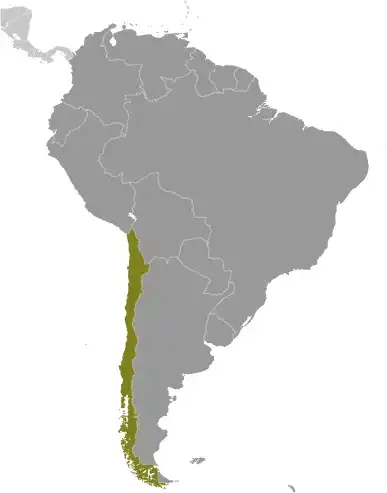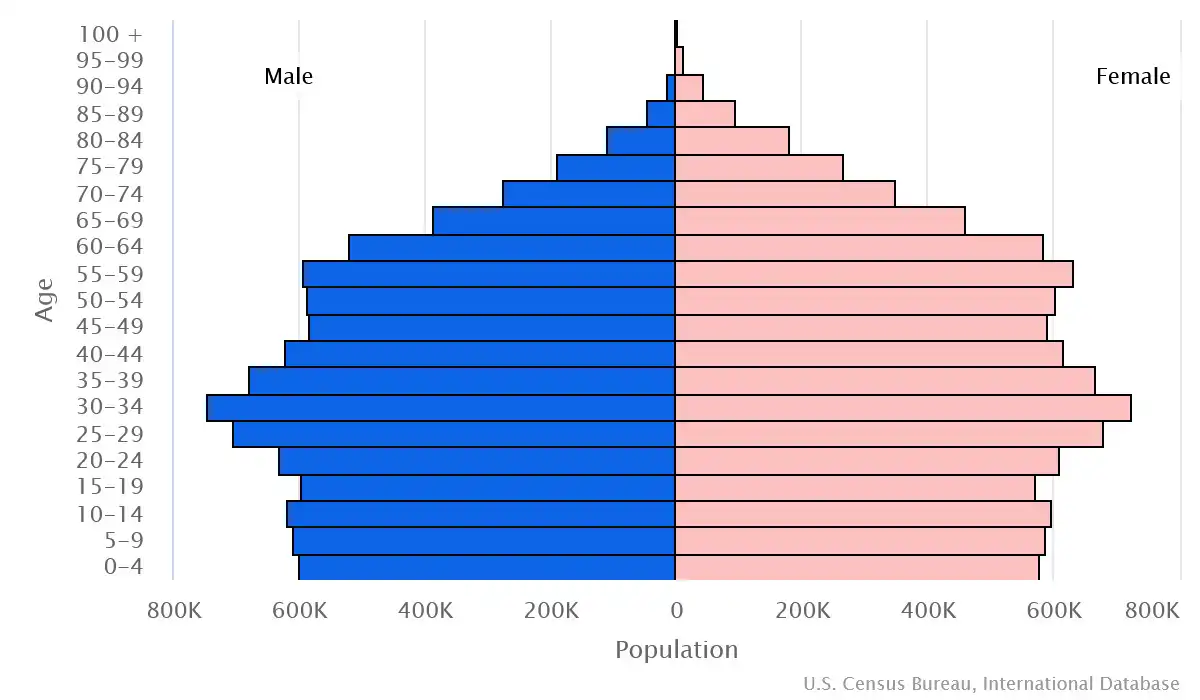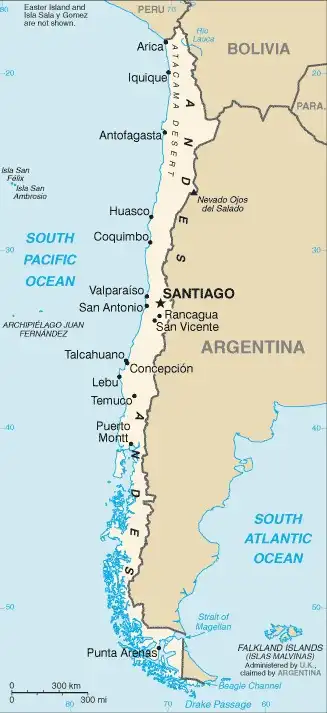
Chile Country Profile
Key Facts of Chile

| Government type: | presidential republic |
| Capital: | Santiago; note - Valparaiso is the seat of the national legislature |
| Languages: | Spanish 99.5% (official), English 10.2%, Indigenous 1% (includes Mapudungun, Aymara, Quechua, Rapa Nui), other 2.3%, unspecified 0.2% (2012 est.) |
Chile Demographic Data
Ethnic Groups in Chile(2012 est.)
Religious Groups in Chile (2021 est.)
Age pyramid of Chile

Chile Economy Statistics
Economic overview of Chile
export-driven economy; leading copper producer; though hit by COVID-19, fairly quick rebound from increased liquidity and rapid vaccine rollouts; decreasing poverty but still lingering inequality; public debt rising but still manageable; recent political violence has had negative economic consequences
Chile Real GDP (purchasing power parity) in Billion $
Chile Real GDP per capita in $
Chile's Exports & Imports in billion $
Top 5 Import Partnerin 2022 (66%) of Chile
Top 5 Import Commodities in 2022 of Chile
- refined petroleum ⛽
- cars 🚗
- crude petroleum 🛢️
- garments 👕
- trucks 🚚
Top 5 Export Partnerin 2022 (72%) of Chile
Top 5 Export Commodities in 2022 of Chile
- copper ore 🟧🪙
- refined copper 🟧🪙
- carbonates ⚪
- fish 🐟
- raw copper 🟧🪙
Geography of Chile
Map of Chile

Land and Water Distrubtion of Chile
Natural Resources of Chile
- copper 🟧🪙
- timber 🌲
- iron ore ⛓️
- nitrates 💧
- precious metals 💰
- molybdenum 🪨
- hydropower 💧⚡
Climate inChile
temperate; desert in north; Mediterranean in central region; cool and damp in south
History of Chile - a Summary
Indigenous groups inhabited central and southern Chile for several thousand years, living in mixed pastoralist and settled communities. The Inca then ruled the north of the country for nearly a century prior to the arrival of the Spanish in the 16th century. In 1541, the Spanish established the Captaincy General of Chile, which lasted until Chile declared its independence in 1810. The subsequent struggle with the Spanish became tied to other South American independence conflicts, with a decisive victory not being achieved until 1818. In the War of the Pacific (1879-83), Chile defeated Peru and Bolivia to win its current northernmost regions. By the 1880s, the Chilean central government cemented its control over the central and southern regions inhabited by Mapuche Indigenous peoples. Between 1891 and 1973, a series of elected governments succeeded each other until the Marxist government of Salvador ALLENDE was overthrown in 1973 in a military coup led by General Augusto PINOCHET, who ruled until a democratically elected president was inaugurated in 1990. Economic reforms that were maintained consistently since the 1980s contributed to steady growth, reduced poverty rates by over half, and helped secure the country's commitment to democratic and representative government. Chile has increasingly assumed regional and international leadership roles befitting its status as a stable, democratic nation.
